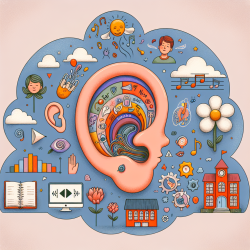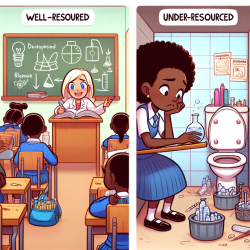Welcome to the World of Ear, Nose, and Throat Disorders
As a practitioner in the field of education and therapy, understanding the complexities of ear, nose, and throat (ENT) disorders can significantly enhance your ability to support students with these challenges. The research article titled "Ear, Nose, and Throat Disorders" offers valuable insights into common ENT conditions and their management, particularly in pediatric populations.
Key Highlights from the Research
The article provides a comprehensive review of various ENT disorders, including:
- Obstructive Sleep Apnea: A condition that requires prompt identification and intervention to prevent complications.
- Hearing Loss: Often associated with genetic syndromes or environmental factors, requiring early diagnosis and intervention.
- Allergic Rhinitis: A common condition that can significantly impact a child's quality of life and academic performance.
- Acute Otitis Media: A frequent pediatric issue that necessitates accurate diagnosis and appropriate antibiotic treatment.
Improving Your Practice
Implementing the outcomes of this research can help practitioners improve their skills in several ways:
- Early Identification: Recognizing symptoms early can lead to timely referrals and better outcomes for students.
- Interdisciplinary Approach: Collaborating with otolaryngologists, audiologists, and other specialists can provide comprehensive care.
- Parental Engagement: Educating parents about potential ENT issues and their impact on learning can foster a supportive home environment.
- Continuous Learning: Encouraging further research and staying updated with the latest findings in ENT disorders can enhance professional development.
Addressing Therapist Staffing Shortages
With the increasing prevalence of ENT disorders, schools may face therapist staffing shortages. Utilizing online therapy services, like those provided by TinyEYE, can bridge this gap by offering remote access to qualified therapists. This approach ensures that students receive the necessary support without delay.
Conclusion
By integrating the findings from the "Ear, Nose, and Throat Disorders" research into your practice, you can enhance your ability to support students with ENT-related challenges. This not only improves their academic performance but also their overall well-being.
To read the original research paper, please follow this link: Ear, Nose, and Throat Disorders.










